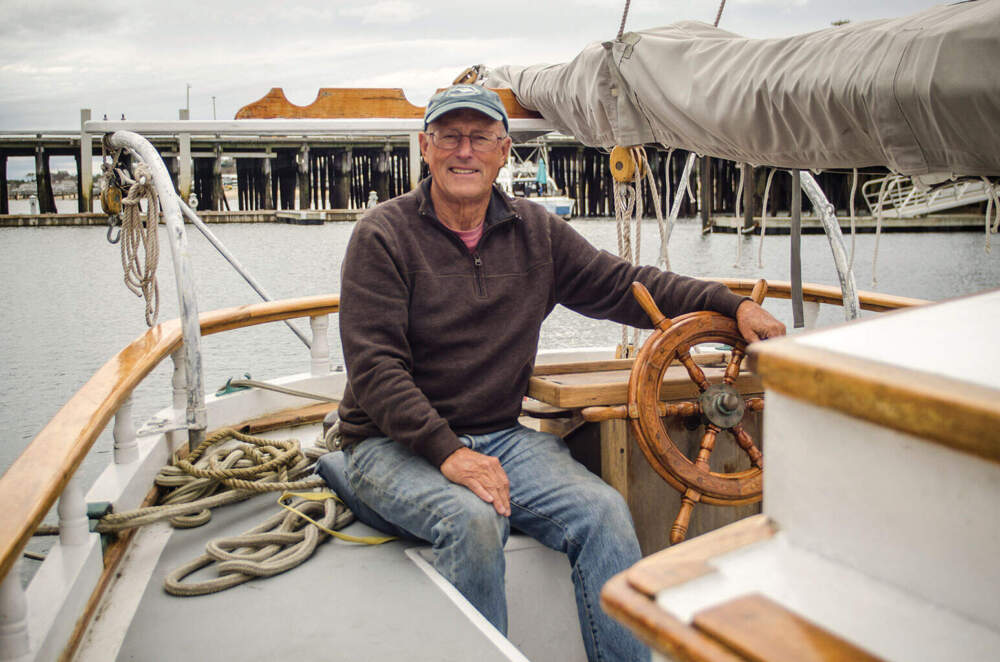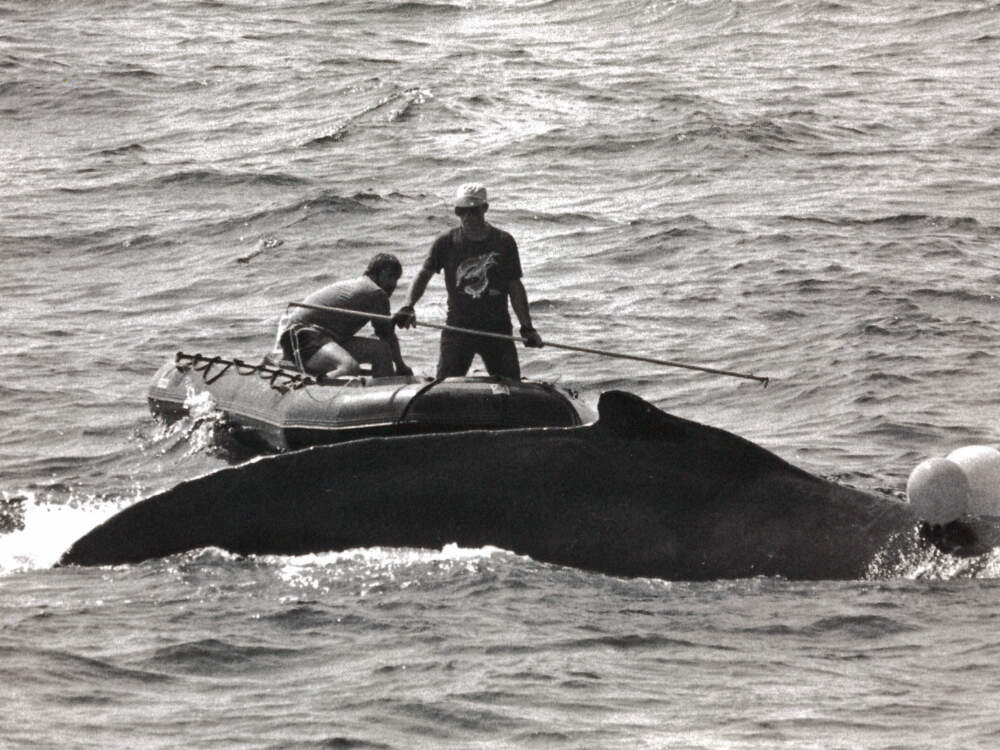Advertisement
Right whale expert Charles 'Stormy' Mayo retires after 48 years of Cape coastal study
Resume
Charles "Stormy" Mayo has been obsessed with whales since he was a child. He grew up in Provincetown and could see humpback whales breaching in Cape Cod Bay. He went on to become the first on-board naturalist for a whale watch fleet.
Forty-eight years ago, Mayo co-founded the Provincetown-based nonprofit Center for Coastal Studies, which leads research and policy initiatives focused on protecting marine life and the coastal environment. He went on to become an expert on right whales and helped develop techniques for disentangling whales from fishing gear.

"Stormy" Mayo (nicknamed as such after he came into this world during a coastal storm and was almost born on his father's fishing schooner) is retiring from the Center for Coastal Studies in May. He spoke with WBUR's All Things Considered host Lisa Mullins.
Interview Highlights
Interview highlights have been edited for length and clarity.
On the current state of the right whale population:
"It still is pretty hard to know how many whales there are in the Atlantic Ocean, you can imagine. [It's] not an easy task as going out and counting, I suppose, tomatoes in the garden or something like that.
"The best estimates ... are probably somewhere in the 350 range. ... It appears, and it's now pretty solid evidence, that the population has been, over the last decade, in decline. I think it's pretty clear that mortality is overall outpacing birth."
On an experience 40 years ago that had a powerful impact on him and the development of techniques for disentangling whales from fishing gear:
"A colleague, David Mattila, and I went out in our boat and came across a whale we called Ibis (that they had tried to free from the netting a few months earlier, but she got away), and she was deeply tangled up in net and obviously was not going to be able to feed, and would likely die. And so we decided we would try to find a way to slow her down. And that's indeed what we did, using ropes and grapples thrown into the entangling gear. And that's still used today worldwide. The technique is just to stop the whale as best you can, and then if it completely relaxes, as Ibis did, you cut the whale free.
"She had very deep cuts around her tail, where the ropes had sawed in and cut deeply into her flesh. And when I reached in, she started to bleed. And I've often remembered that moment when she became not this giant object, but a feeling creature — much like us. And it was a moment, I would say, almost of bonding between the whale and and me.
"I was unsure that we were ever going to see her again. And in fact, the next year, we did find her far off of Provincetown on a whale watch. And lo and behold, she jumped, which ... was a wonderful thrill for those of us who'd freed her."
On the warming of ocean waters and how that impacts whales and ecosystems:
"We know the system is warming, that currents are changing, that the food of animals that is so important for all of us — that pattern of food production — is changing. Exactly how that is impacting the animals is hard to say. In the case of right whales that I work on, it appears, somewhat unexpectedly, that while their food across much of the western North Atlantic is changing its patterns and the whales are moving further north, in Cape Cod Bay, oddly, is the only place where the opposite seems to be changing. We seem to be seeing more of the food organisms and therefore more of the right whales."
On his level of optimism as he leaves his post:
"I suppose 'optimism' may be extreme. ... The ocean ecosystem is in a state of radical change. The high Arctic that is so important to giving us the kind of environment that we have has gone through radical changes in temperature, and all of that probably ends up creating a different world — not just in the oceans, but on the land. ... My hope is that we will all understand that we are in the same ecosystem — this Earth system; and we're all going to have to get together, as the primary causes of that [change], and do something about it — or all of our lives will change."
This segment aired on April 30, 2024.

